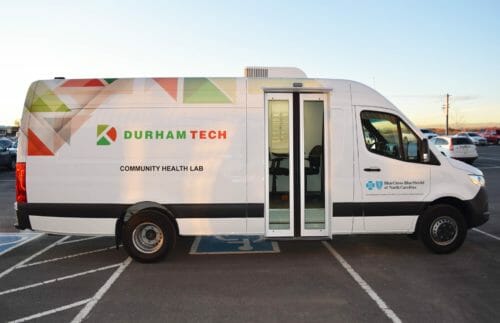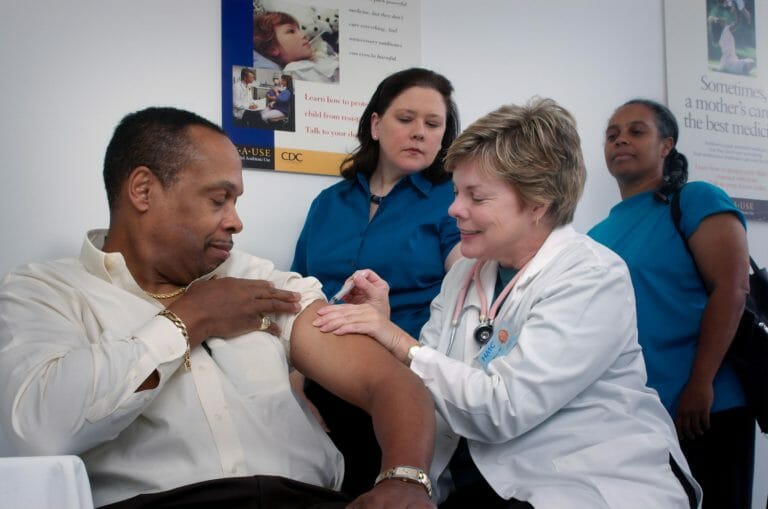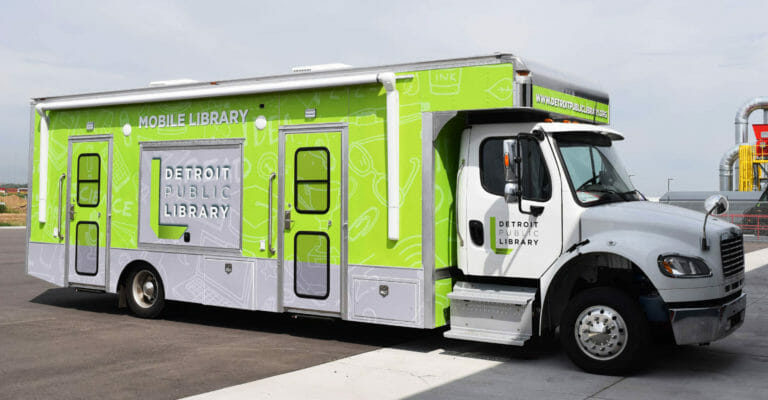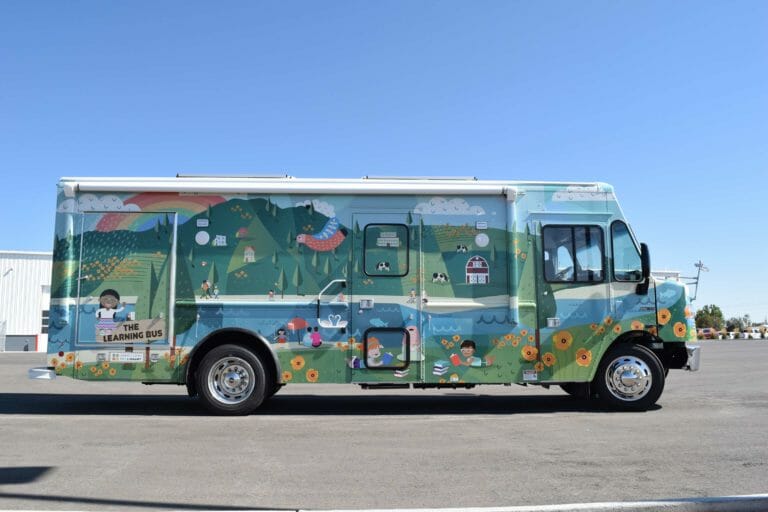Mobile Medical
Medical Van vs Medical Bus, Which is Right For Your Clinic?
January 17, 2022

When choosing a mobile medical unit, the options available are vast. From unique designs and layouts to the size of the actual vehicle, you will be faced with many decisions as you browse available inventory.
Two popular styles of mobile medical units are medical vans and medical buses, and both sizes are beneficial in their own way. Deciding which one is right for your clinic will be determined by how you plan to use the vehicle.
Today, we’ll look at medical vans versus medical buses and help you choose which style is right for your clinic.
Pros and Cons of a Medical Van
Medical vans are built on a small van chassis. For example, many medical vans are upfit on Ford Transits or Mercedes Sprinters. Clinics often utilize these units for quick medical services, such as COVID-19 testing, vaccination clinics, pregnancy testing, and other services that do not require a large amount of equipment or space.
The benefits of a medical van include the following:
- Lower upfront cost: A van is a great fit for teams that need a simple mobile medical solution. These units cost less upfront, allowing teams to invest in a new or used van without straining their budget.
- Easy maneuverability: Medical vans are easy to take down tight roads and can be parked in any standard parking space. This makes them a great fit for medical teams that need to be capable of driving anywhere.
- Simple to drive: Not only are medical vans easy to maneuver, but they are simple to drive. Anyone comfortable driving a standard vehicle will feel at ease behind the wheel of a medical van. Their small, compact size makes them less intimidating for medical staff to operate.
- Lower cost for repairs and maintenance: Because a mobile medical van is built on a simple van chassis, they are easy to maintain and repair. The cost for work on these vehicles is no different than a typical vehicle.
The drawbacks of a medical van include the following:
- Limited space: Medical vans are not ideal for teams that need to see patients in a private, one-on-one space. Due to their small size, these units are not usually designed with separate patient rooms or with any space to perform more intensive medical services.
- Limited equipment options: Along with their limited space for seeing patients on board, mobile medical vans are not ideal for hauling heavy or large equipment. They have little cargo space and are limited in the weight they can carry.
- Less future versatility: A mobile medical van will generally have a few key purposes, such as providing testing or vaccination services. However, they are limited in many ways due to their space constraints.
Pros and Cons of a Medical Bus
In contrast to the small compact design of a medical van, medical buses are designed to offer a large amount of space. Their layouts usually encompass everything from waiting rooms to private screening rooms. These large builds can be created with almost any type of medical equipment imaginable, making them a good fit for clinics that want to take their full array of services on the go.
The benefits of a medical bus include the following:
- Enough space for any need: A medical bus is large enough to meet almost any medical service needed. These units can feature multiple private rooms for seeing patients, waiting areas, and even staff break rooms.
- Capable of hauling large equipment: Along with being capable of hosting numerous patients at once, mobile medical buses are also designed to haul supplies of almost any size. Their large build allows for plenty of space for imaging equipment, and their powerful engines can transport equipment almost anywhere.
- Long-term versatility in use: While a mobile medical bus might start as an imaging clinic, the large size of the build allows for it to be repurposed down the road. This makes it a great long-term investment.
The drawbacks of a medical bus include the following:
- Higher upfront cost: Due to the large size of a medical bus, these units are much more expensive upfront than a van. Financing can require a higher down payment and more available finances.
- Higher maintenance and repair costs: With their large size, a medical bus will have higher costs for repairs and maintenance. These units require more expensive parts, larger amounts of fluids, and labor costs are often higher for working on a bus.
- More difficulty in maneuverability: Maneuvering a medical bus can be difficult on tight or winding roads. Additionally, these units require more available space for parking.
Choosing the Right Layout and Size for Your Clinic
When comparing the benefits and drawbacks of both medical units, you and your medical team need to think through the specific needs. Use the following questions to help guide the process:
- How much medical equipment will you need onboard? Make sure to account for all the medical equipment you will want to use. Keep in mind that you want to ensure that the area doesn’t become cramped as you add in medical equipment.
- How many patients will you be seeing at once? It is important to ensure you will have ample space for patients, adhering to social distancing requirements and allowing for patient privacy.
- What is your budget? In some cases, a medical van might be the best place to begin if your clinic is on a limited budget. However, keep in mind that financing options may allow you to upgrade to a larger unit.
- Where will you be taking the medical unit? One of the top benefits of a medical van is that it can transport your team and equipment almost anywhere. If you plan to take your medical unit down small roads or need to be able to park in any tight space, a medical van is a better choice than a bus.
- What is the primary use of the clinic? If your team simply needs to transport items from one clinic to the next or administer testing on-site, a small build may suffice. If, however, you plan to see patients, offer imaging services, or require separate screening spaces, you will need to invest in a bus size build.
Talk to Summit Bodyworks About Medical Unit Options
Whether you need a medical van to host vaccination clinics or your team is looking to invest in a full medical bus, our team at Summit Bodyworks is here to help. We offer a quality selection of reliable mobile medical units. From small Ford Transit builds to large 38-foot Freightliners, our designs can meet the needs of any medical team.
If you are interested in learning more about our current inventory or have specific questions about design options, we are happy to help. Reach out to our team today and find the ideal mobile medical van or bus.


